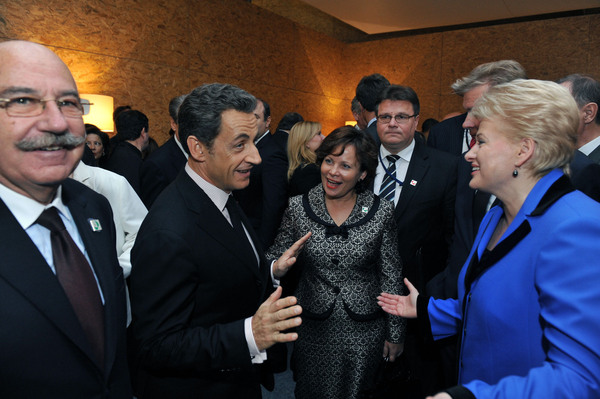Nice's big loser Europe?
(Archives B2) The European summit has turned into a quagmire full of traps for the French presidency
In Nice - The Nice summit got off to a good start. France used a strategy, quite original and brilliant”, noticed by foreign diplomats, alternating “confessional”, suspensions of meetings, plenary sessions and working dinners. A few days later, the same - heads of government and diplomats - panting around the table, trying concession by concession, to unblock the most delicate subject: what weight should each country be given on the European scene?
Come Sunday, no diplomat ventured to describe the French tactics as negotiations, as they seemed muddled and incoherent, or to take bets on the end of the summit. The absence of negotiations during the night surprised more than one veteran of negotiations, accustomed to night rushes. The compromise solution moved further away as the hours passed. It's a " card castle “, recognizes Pierre Moscovici, Minister Delegate for European Affairs, where “ retouching a point threatens the whole edifice ».
Indeed, in all corners of the Acropolis, the Nice convention center converted for the occasion, everyone talks with everyone. The experts from the fifteen countries dissect the proposals of the others, amend them and present their own counter-proposals. The official French solutions are followed by Belgian and Finnish counter-proposals and unofficial arrangements which are immediately destroyed. Result: the negotiation is delayed. To the point that at a late hour in the afternoon, Jacques Chirac somewhat banged his fist on the table. To the Portuguese and Belgians who were trying to come back to the previous discussion, he hit them with a did not presidential. " I do not want to talk about it anymore closed the discussion. For now.
Because, in a negotiation of this scale where the alternation of tensions and intimidation is usual, the stakes are not small. Each country indeed came to Nice knowing that it had little to gain and much to lose. The major countries (France, Germany, Italy) fear their weakening in an enlarged Europe. They have thus renounced their second representative to the European Commission without obtaining that their weight in the Council of Ministers is substantially increased. Added to a possible substantial drop in its deputies in the European Parliament, France could thus yield to Germany a disguised “dropout”.
But the big loser in Nice is above all Europe. As discussions stand, the right of veto, an old British claim, remains in force for the majority of tax and social security provisions. The Commission is not significantly strengthened, having to increase to 27 members with the enlargements. And in 2005, the future head of the institution will still not be able to freely choose his commissioners. He may just change their portfolios during their mandate or demand their resignation in the event of a problem. In fact, like a housewife in a hurry, faced with her guests waiting at the door, Europe in Nice was content to put away the dust under the furniture rather than to do the housework completely.
(Nicolas Gros-Verheyde)
published in France-Soir, December 2000
